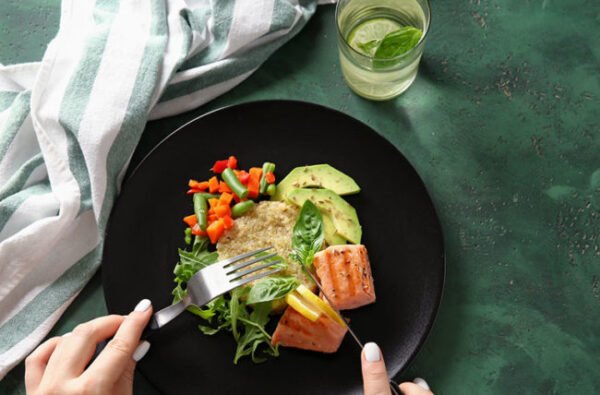
Someone going through COPD stem cell treatment or any other form of cancer treatment may find that their food preferences and usual pattern of eating change. Eating may become more difficult, and they may even find that they don’t feel hungry at all.
In addition, cancer treatments such as chemotherapy can cause physical side effects that make eating more taxing and less enjoyable. Three of the most common side effects of cancer treatment are changes to taste, fatigue, and diarrhoea.
Whilst these side effects do usually improve with time, it can be tough to adjust to them initially. However, it’s important to give your body all the vitamins and minerals it needs to maintain your strength and aid recovery after treatment.
An oncology dietician from Perci Health has put together this helpful guide to six diet changes that you can make during cancer treatment. These small changes can help you keep your energy levels up whilst also alleviating the common side effects of cancer treatment.
Drink plenty of fluids
Some people find that cancer treatment causes them to have a metallic taste in the mouth and/or a dry mouth. These side effects can alter how you feel about food and its flavour, especially as you need saliva to taste food. To combat dry mouth, you may find it helpful to have a glass of water with each meal and to carry a water bottle with you throughout the day.
Fatigue can feel worse if dehydrated so drinking plenty of water can help with this side effect too. In addition, if you are experiencing diarrhoea after treatment, replacing the fluids you have lost is essential.
If you don’t want to drink plain water, you can add some flavoured squash or opt for herbal teas.
Opt for small frequent meals
There may be times when you don’t feel you can stomach a large meal. Therefore, it can be better to have smaller meals more frequently throughout the day to ensure you are still getting the nutrients you need.
If you don’t want to spend time preparing lots of meals, or you simply don’t have the energy to cook, opt for snacks or pre-prepared meals instead. Quick and filling snack ideas include:
● Crumpets
● Crackers and cheese
● Nuts
● Hard-boiled eggs
● Dried fruit
● Yoghurt
● Pitta and hummus
● Apple slices and peanut butter
Have your main meal at lunchtime
Fatigue can mean you don’t have the energy to cook, and it can cause you to lose your appetite too. React to your body cues as it’s ok you eat what you feel like. It can help to have your main meal of the day at lunchtime, especially if you find you are particularly tired come the evening. Having your largest meal at lunch also gives your body plenty of time to digest the food before you go to bed.
Choose palatable, easily digested foods
As cancer treatment can cause changes to your sense of smell and taste, it can be beneficial to choose typically plain, palatable foods that are less likely to cause a strong aversion or make you feel nauseous. Such foods include:
● White bread
● Boiled potatoes
● White fish
● Poultry
● Well-cooked eggs
● Pasta
● Rice
● Plain yoghurt
● Banana
These foods are also easily digestible which makes them good options if you are dealing with an upset stomach and diarrhoea. When you feel you want to, you can introduce extra elements to these foods to add additional flavours and textures. For example, you could add a dash of honey to a bowl of yoghurt, spread jam onto your toast or add a tomato sauce to your pasta.
Eat cold or warm foods rather than hot meals
Some cancer drugs and immunotherapy can cause sores to form inside your cheeks and on your tongue, the roof of your mouth, lips, and gums. Even if you don’t get sores, you may experience inflammation inside the mouth. Whilst this is usually temporary, it can cause discomfort when eating.
Choosing cold and warm foods can make it easier to eat and food at these temperatures can also be more palatable than hot foods if you are experiencing a metallic taste in the mouth.
Avoid caffeinated drinks
Caffeine-containing drinks have a laxative potential, especially if you drink more than three cups a day. Plus, if you are already experiencing diarrhoea, they can make the symptoms worse.
The most common drinks containing caffeine are tea (including green tea), coffee and energy drinks. Avoid these if you can and choose water, fruit juice or squash instead. If you want a hot drink, try a caffeine-free option such as:
● Peppermint tea
● Chamomile tea
● Honey and lemon
● Hot squash
● Broth
● Golden milk
